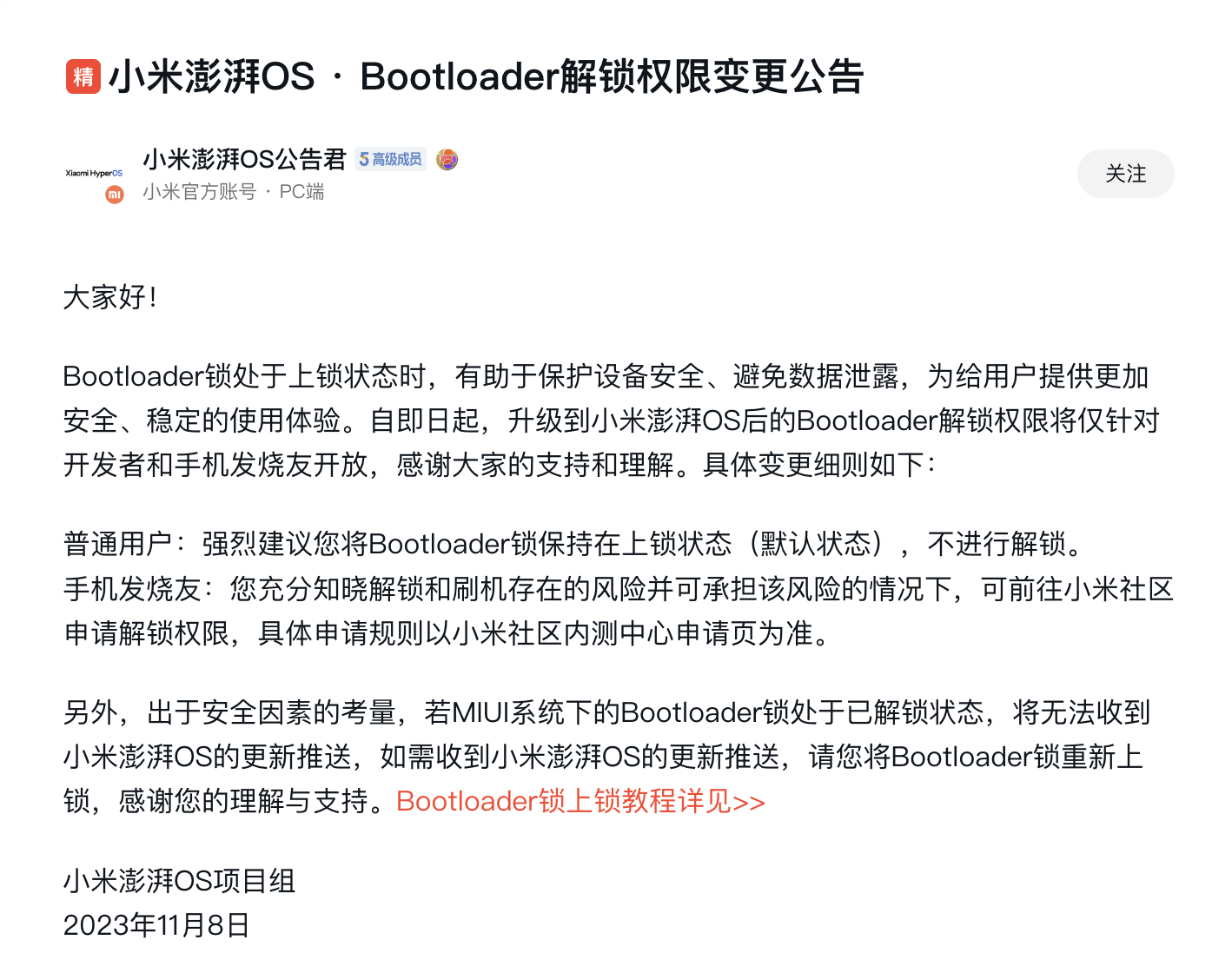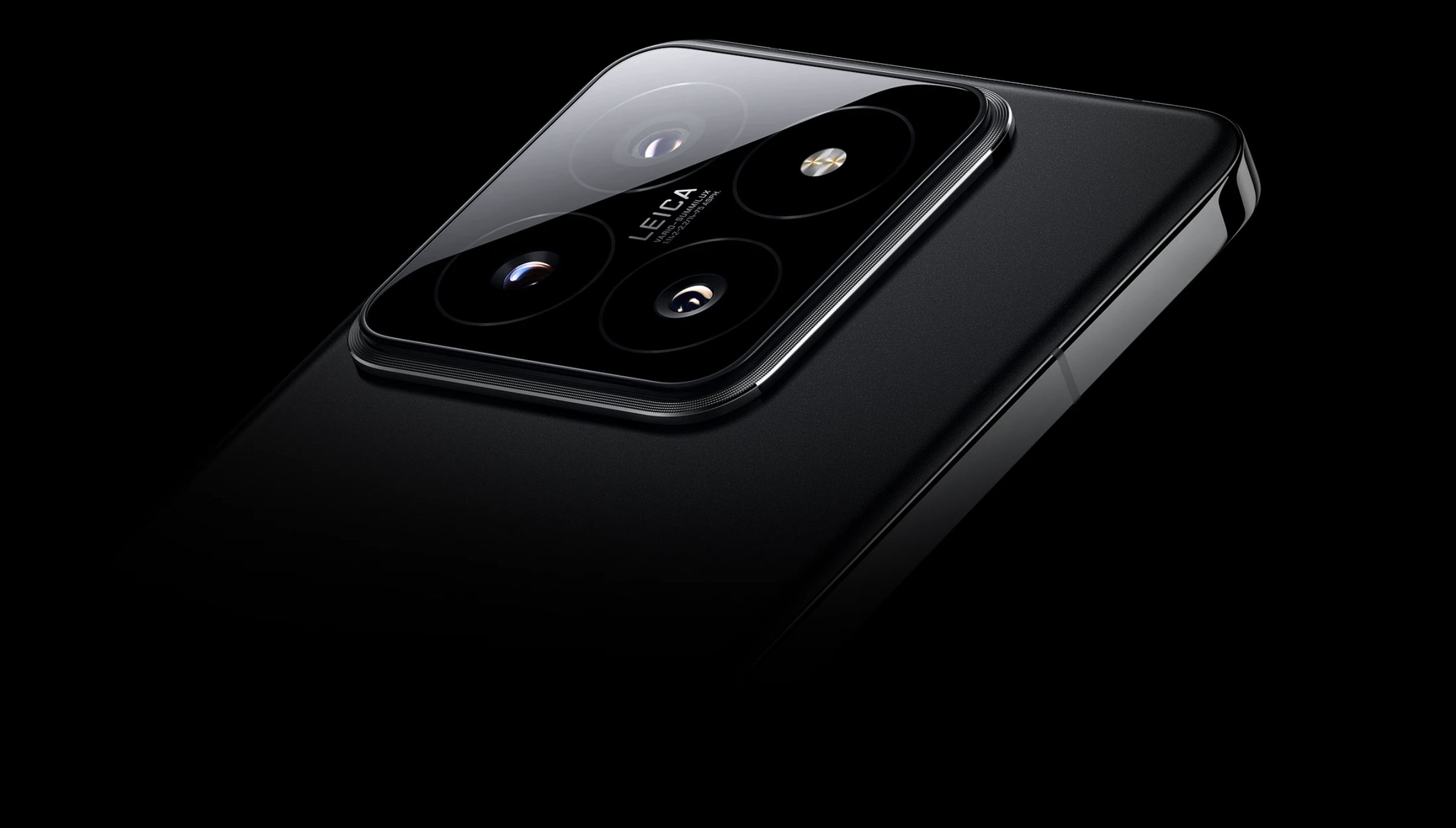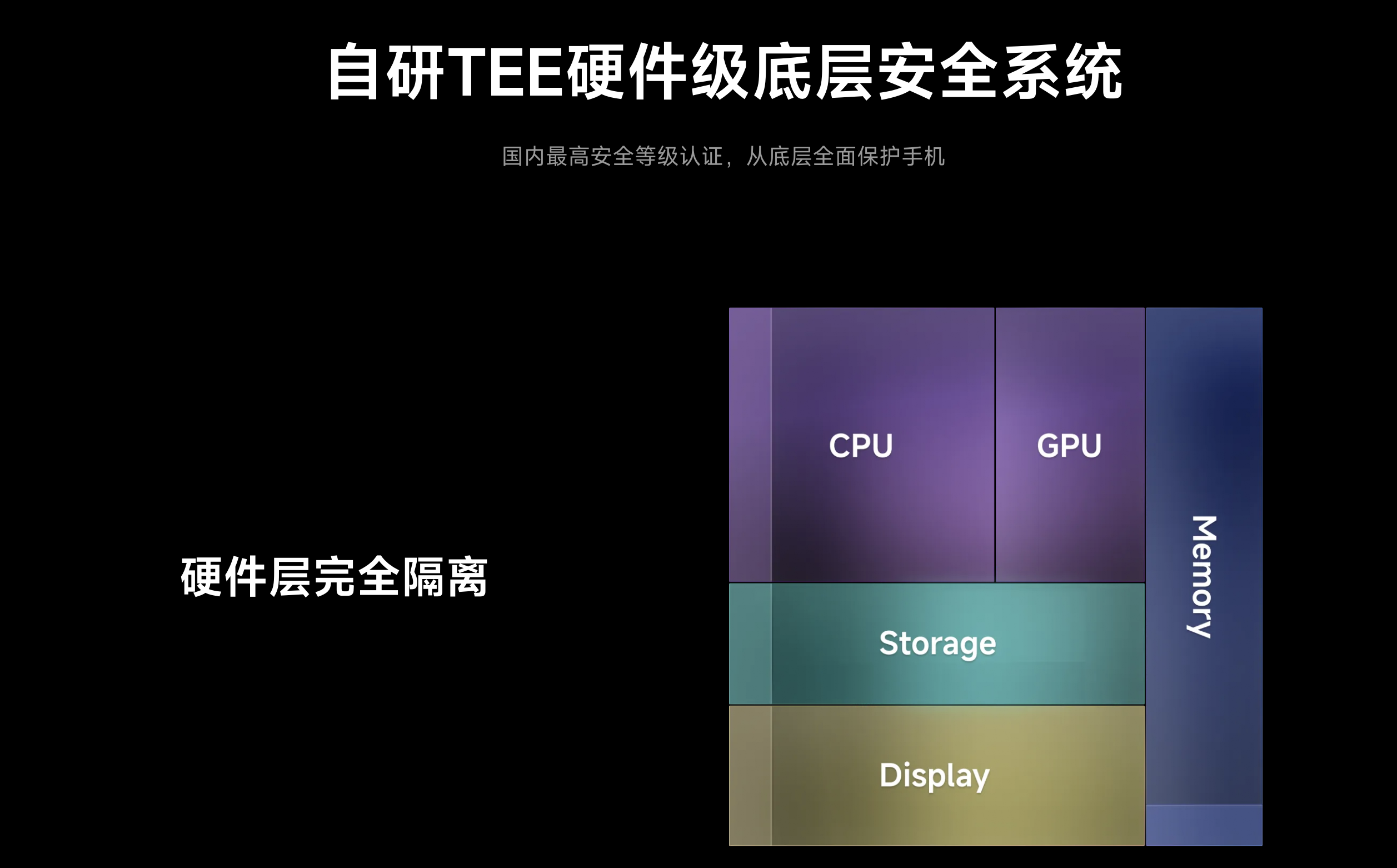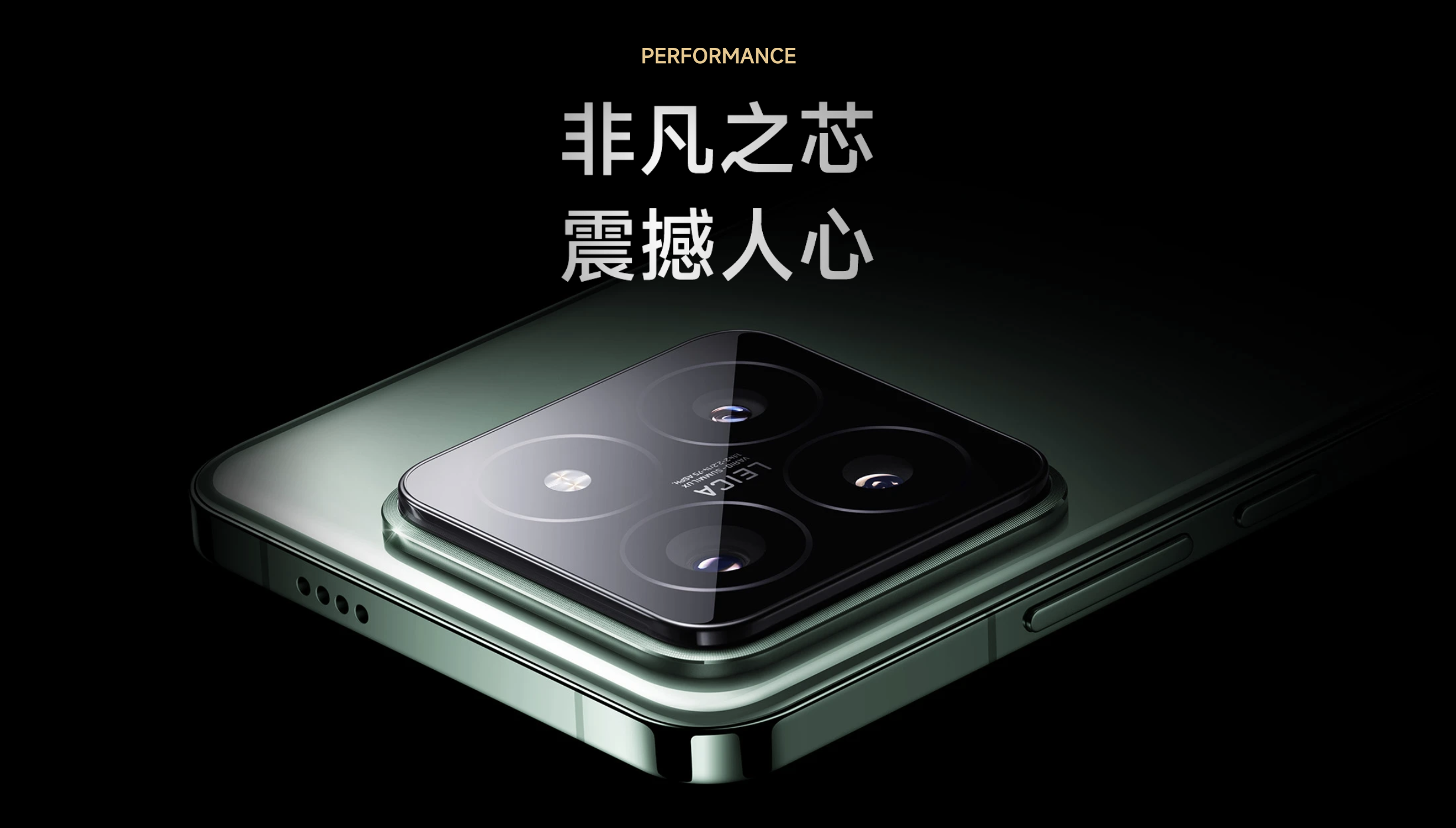 Hardware Tutorial
Hardware Tutorial
 Hardware News
Hardware News
 Xiaomi ThePaper OS raises the BL lock threshold and is only open to enthusiasts
Xiaomi ThePaper OS raises the BL lock threshold and is only open to enthusiasts
Xiaomi ThePaper OS raises the BL lock threshold and is only open to enthusiasts
This year marks the beginning of a new stage for Xiaomi. It bids farewell to MIUI and welcomes Xiaomi ThePaper OS. The new Xiaomi Mi 14 series has achieved sales of one million units since its launch, bringing fame and fortune.
#But for this new Xiaomi Pengpai OS, many old "mi fans" are a little uneasy. As we all know, MIUI has always been a favorite among geeks since its first version was released. If nothing else, it’s because Xiaomi provides very simple and easy-to-use root tools and unlocking tools, with a high degree of freedom.
The biggest feature of Xiaomi ThePaper OS is that it attaches great importance to security. Does this mean that Xiaomi will completely cut off the "ration" of geek players?
that is not.
Just today, Xiaomi officially released an announcement about Xiaomi Pascal OS Bootloader unlocking permissions. The key point is: developers and mobile phone enthusiasts can still apply for unlocking.

(Photo source: Xiaomi Community)
But the bad news is , the difficulty of applying for unlocking is simply astronomical.
Unlocking becomes difficult, Xiaomi wants to abandon "enthusiasts"?
#First of all, to answer the question that “mi fans” are most concerned about, whether ThePaper OS can still unlock the bootloader lock, the answer is yes.
To apply for Bootloader unlocking, the required conditions include:
1. Xiaomi community level 5 or above You can apply for an account
2. Thermal OS users need to register in the official community and answer questions to get the opportunity to apply
3. Successful registration is not the same as successful application. The specific results shall be subject to official notification
In fact, the registration and answering modes were already like this in the previous MIUI era. It’s just that users of ThePaper OS devices need to have a Xiaomi community account level of 5. This requirement still has a certain threshold. According to the experience value bonus plan calculated by netizens, during the new product launch period, the experience value of posting, interacting, replying and other operations will increase faster, that is, it can reach level 5 within one month at the fastest.
But it is worth noting that meeting the conditions and successfully registering does not mean that the application has been completed. This is quite unexpected. Maybe Xiaomi does want to filter Find the "enthusiasts" who really need it.


First of all, unlocking the Bootloader does not affect the use of normal security applications, such as the system's own wallet, fingerprint payment, and UnionPay security components. Some third-party systems are also very adaptable to system-related components, and there is basically no component failure caused by bootloader unlocking. However, the risk of swiping into third-party systems is still very high, especially modified systems developed by individual producers, which are likely to have backdoor implants. Users who are not familiar with third-party systems still need to be cautious.
Secondly, Xiaomi has always been very tolerant of Bootloader and Root permissions, which is also reflected in after-sales service providers. According to official after-sales information, as long as it is within the warranty period and has a purchase certificate, Xiaomi mobile phones can obtain the warranty normally regardless of whether they are unlocked or not. However, Root permissions and Bootloader will be re-locked after the repair is completed.
Last point, although Xiaomi's unlocking the bootloader does not affect the use or after-sales service, if the phone is lost, it will be easier for others to bypass Xiaomi's by flashing the phone. If the retrieval permission is lost, once the phone is flashed, the personal data will basically not be preserved.
Raise the bar, has Xiaomi done a good thing?
For old "mi fans", the greatest fun of MIUI is to obtain Root permissions, unlock the Bootloader, and flash their favorite systems and plug-ins. However, as MIUI functions become more and more complete, fewer and fewer users actually need to flash their phones, and MIUI has begun to tighten the unlocking permissions more and more.
As early as the launch of the Xiaomi 12S series, the cooperation between Xiaomi and Leica attracted great attention from "Mi fans". Not long after the new phone was released, they immediately By obtaining Root permissions and unlocking the Bootloader, some users made Leica watermarks and some algorithms into plug-ins and shared them with everyone "for free".
From Xiaomi's perspective, Leica is after all one of the selling points of the new flagship model. It would be beneficial to be cracked so easily and shared with users of other models. Also suffered losses.

On the other hand, flashing various plug-ins will inevitably affect the smoothness of the system. cause impact. Xiaomi also made it clear in its latest announcement that MIUI systems that have unlocked the bootloader on older Xiaomi phones will not be able to receive OTA updates for ThePaper OS. This very well illustrates Xiaomi’s attitude.
Of course, looking at the entire smartphone market, there are actually very few manufacturers that can maintain such an open attitude towards Root permissions and unlocking Bootloader like Xiaomi. Xiaomi decided to Further tightening policies on The Paper OS is a reasonable approach in terms of interests and development.
But for users who want to mess with their mobile phones, raising the application threshold is indeed not a good thing, and users of older models must re-lock the Bootloader Only in this way can we receive the OTA update of ThePaper OS. This approach will cause a lot of controversy.
Written at the end
In the MIUI era, the open and free features have attracted the attention of countless enthusiasts Highly concerned, but when it comes to ThePaper OS, Xiaomi needs to take more into account the actual needs of consumers, so Root permissions and Bootloader unlocking have once again become "niche needs."
#However, Xiaomi has not completely blocked bootloader unlocking and reserved space for enthusiasts and developers. This is also in line with current market rules. There are also many old "mi fans" who think that Xiaomi has forgotten its original intention and the original intention of Xiaomi's founding. But looking back, even in the early days of MIUI, those who were keen on tinkering with mobile phones were actually still enthusiasts. Since the service The object has not really changed, so it cannot be said that there is much wrong with Xiaomi's approach.
Currently, ThePaper OS is still in its infancy, and we don’t know how many variables there will be in the future. But in terms of the openness of the system, we still very much look forward to Xiaomi continuing to reserve more space for enthusiasts.
The above is the detailed content of Xiaomi ThePaper OS raises the BL lock threshold and is only open to enthusiasts. For more information, please follow other related articles on the PHP Chinese website!

Hot AI Tools

Undresser.AI Undress
AI-powered app for creating realistic nude photos

AI Clothes Remover
Online AI tool for removing clothes from photos.

Undress AI Tool
Undress images for free

Clothoff.io
AI clothes remover

Video Face Swap
Swap faces in any video effortlessly with our completely free AI face swap tool!

Hot Article

Hot Tools

Notepad++7.3.1
Easy-to-use and free code editor

SublimeText3 Chinese version
Chinese version, very easy to use

Zend Studio 13.0.1
Powerful PHP integrated development environment

Dreamweaver CS6
Visual web development tools

SublimeText3 Mac version
God-level code editing software (SublimeText3)

Hot Topics
 1387
1387
 52
52
 Leica Sofort 2: Strong Leica taste, but the image quality is not satisfactory
Jan 03, 2024 pm 04:08 PM
Leica Sofort 2: Strong Leica taste, but the image quality is not satisfactory
Jan 03, 2024 pm 04:08 PM
Yes, I spent more than 3,000 yuan to buy a real Leica camera. This is not a joint brand between Xiaomi and Sharp. It is a real Leica camera. It can even be found in the official Leica APP. It is a brand new product launched by Leica just last month - Sofort2. (Picture source: Photographed by Lei Technology) Last month I wrote an article commenting on Leica’s new machine, which is simply cutting leeks. The price of more than 3,000 yuan to buy such a machine is extremely high in the polaroid market. A backward product must have too much money and no place to spend it, and is simply a "big mistake". But adhering to the concept that if I don’t go to hell, who else will, I still placed an order for the Leica Sofort2 on the night it went on sale and became a “real” Leica user. Appearance: An exquisite toy? Leica Sofo
 OPPO did the right thing by giving up ProXDR
Jan 06, 2024 pm 11:37 PM
OPPO did the right thing by giving up ProXDR
Jan 06, 2024 pm 11:37 PM
Not long ago, OPPO announced at the Paris Film Festival that it was working with Kazakhstan and the Soviet Union to create a new generation of super light and shadow imaging systems, which will be launched on the OPPO Find X7 series. Choosing to announce this news at the world's largest and most influential photography exhibition shows how much OPPO attaches importance to the new generation of ultra-light and shadow imaging systems. According to OPPO, the new generation of Super Light and Shadow imaging system mainly consists of three parts: - Super Light and Shadow full main camera system, from increasing the zoom magnification to creating multi-view creative freedom; - Super Light and Shadow image engine, using more calculations to achieve less Computational traces; - Ultra-light and shadow ProXDR display, a photo display technology that conforms to the screen viewing method. Among them, "super light and shadow full main camera system" refers to the hardware of the imaging system, and "super light and shadow image engine" refers to the image
 Can Meizu 21 Pro compete head-to-head with flagships from major manufacturers?
Jan 03, 2024 pm 06:10 PM
Can Meizu 21 Pro compete head-to-head with flagships from major manufacturers?
Jan 03, 2024 pm 06:10 PM
On the last day of November, Meizu took advantage of the new wave of Snapdragon 8Gen3 phones to bring its annual flagship new phone, Meizu 21. Not long ago, this site also conducted a review of this product. It is a mobile phone with obvious advantages and disadvantages. Moreover, Meizu 21 currently only has one model, unlike other brands that are divided into medium and large sizes. For those who want a super flagship, Meizu 21 seems a bit not “Pro” enough. (Photo source: Photographed by this site) However, recent news about Meizu 21Pro has appeared on the Internet, which is good news for Meizu friends who want more extreme configuration and experience. The screen of Meizu 21 is not strong enough? 2K screen is coming! The charging power of Meizu 21 is not high enough, 100W fast charging is coming! Could it be that Meizu 21 is just a “small test”?
 Redefining human-computer interaction, Honor MagicOS 8.0 is officially released!
Jan 11, 2024 pm 10:06 PM
Redefining human-computer interaction, Honor MagicOS 8.0 is officially released!
Jan 11, 2024 pm 10:06 PM
On January 10, 2024, Honor held its first offline conference of the year in Shanghai, where MagicOS 8.0 officially debuted. MagicOS8.0 is a new self-developed operating system created by Honor. It is the industry's first new generation of human-computer interaction - intent-recognized human-computer interaction. In addition, the new system also brings many new functions based on AI, such as "Any Door", "Conversation into Movies", "Multi-modal Schedule Management", etc. (Photographed by Lei Technology) Honor calls MagicOS8.0 a new generation of interactive mode system after command line interaction, graphical interaction and natural interaction. As for how awesome it is, let’s take a look below. A system that can learn, a system that understands you better. When it comes to "AI", in fact, Honor created its first smartphone as early as 2016.
 Razer Viper V3 Pro review: What's the trade-off between power and portability?
Jan 03, 2024 pm 04:17 PM
Razer Viper V3 Pro review: What's the trade-off between power and portability?
Jan 03, 2024 pm 04:17 PM
In the discussion about gaming mice some time ago, Xiao Lei mentioned that the first true “gaming mouse” was the Razer Boomslang released by Razer in 2003 – a USB game with a DPI of “up to” 2500 and a polling rate of 125Hz. mouse. But in fact, the statement is not accurate, because this 2100/25 polling rate 00DPI Boomslang is actually an upgraded version of this series. Its previous generation, Boomslang released in 1999, is the real first game. mouse. Compared with the second generation released 4 years later, the first generation Boomslang used a more primitive PS/2 interface, and the polling rate was only 10-200Hz; until 2005
 New affordable Meta Quest 3S VR headset appears on FCC, suggesting imminent launch
Sep 04, 2024 am 06:51 AM
New affordable Meta Quest 3S VR headset appears on FCC, suggesting imminent launch
Sep 04, 2024 am 06:51 AM
The Meta Connect 2024event is set for September 25 to 26, and in this event, the company is expected to unveil a new affordable virtual reality headset. Rumored to be the Meta Quest 3S, the VR headset has seemingly appeared on FCC listing. This sugge
 Redmi Note 12 Turbo: Use tricks to create a flagship experience
Jan 15, 2024 pm 11:03 PM
Redmi Note 12 Turbo: Use tricks to create a flagship experience
Jan 15, 2024 pm 11:03 PM
In the TOP10 list of mobile phones with the largest shipments in 2022 announced by the market research organization Canalys, a mobile phone of the domestic brand Redmi appeared. Redmi Note 11 has also become the only domestic mobile phone on the list. When it comes to Redmi, every product is highly praised. It not only puts a lot of effort into materials and performance, but also provides a high-end flagship experience at a preferential price. What we are going to talk about today is Redmi’s latest Redmi Note12 Turbo, which uses magic to create a flagship experience. Appearance: In addition to releasing three standard colors of carbon fiber black, star sea blue, and ice feather white, Redmi Note12 Turbo also cooperated with "Harry Potter" to jointly create Note12 Turbo
 Huawei StarLight, wants to revolutionize Bluetooth?
Jan 11, 2024 pm 09:51 PM
Huawei StarLight, wants to revolutionize Bluetooth?
Jan 11, 2024 pm 09:51 PM
At a press conference some time ago, Huawei officially released a new generation of wireless connection technology - NearLink. Different from previous wireless technologies, NearLink is not developed based on the specifications of traditional wireless technologies such as Bluetooth, but Huawei's years of wireless experience. With the accumulation of technology, a new wireless connection specification is created. If you didn’t watch the press conference, it doesn’t matter. Let’s take a quick look at StarLight: it uses a set of standards to combine the advantages of traditional wireless technologies such as Bluetooth and WIFI. This technology is suitable for consumer electronics, smart homes, new energy vehicles, and industrial intelligence. Various scenes such as construction. Compared with Bluetooth technology, the power consumption is reduced by 60%, the transmission rate is increased by 6 times, it has lower latency, more stable connection and anti-interference ability, the coverage distance is increased by 2 times, and the number of connections is increased by 10 times. above



